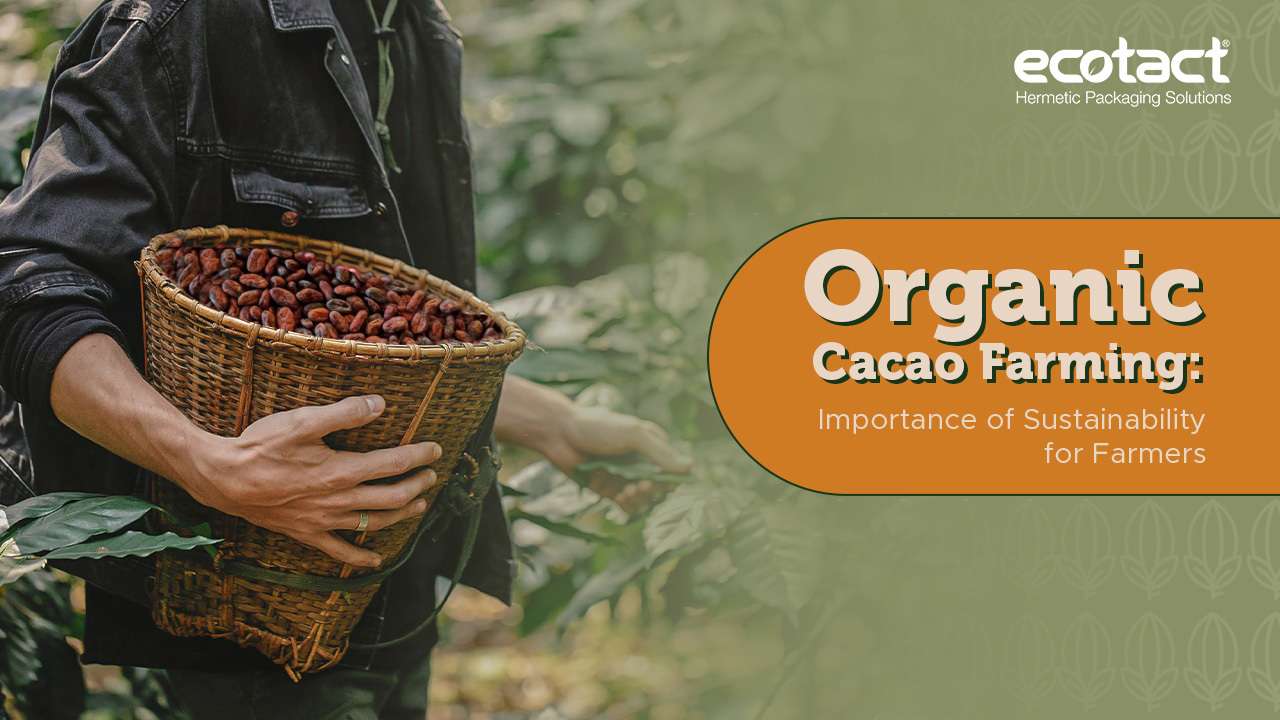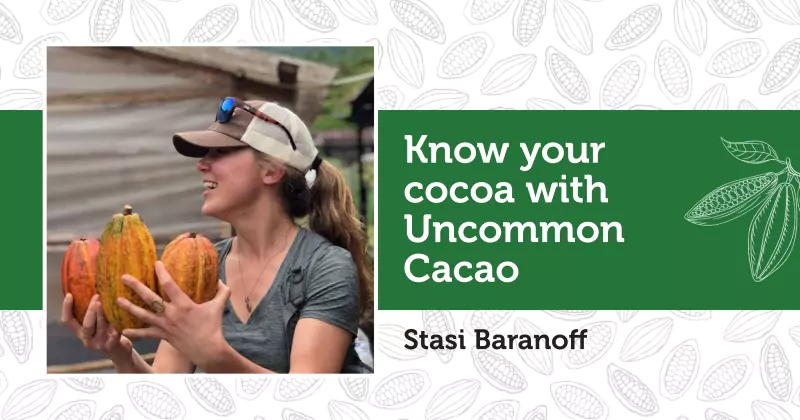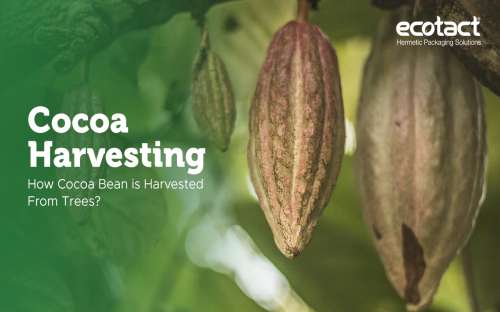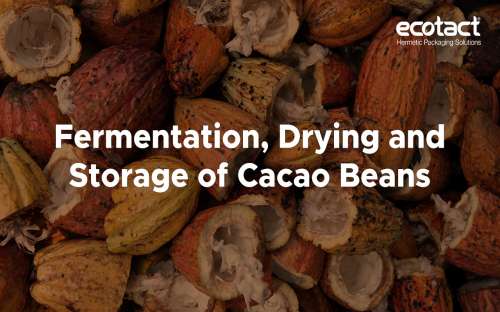Organic farming in a nutshell is growing food free from genetic modification, nurturing it in fertiliser free soil. The reason cacao is the second most important organic crop is that it also aids in safeguarding the ecosystem by boosting sustainable farming methods.
Cacao is called Earth's natural cup of love. Both for its flavour and the fact that organic cocoa farming has allowed more than 90 thousand farming families to rise from poverty.
Benefits of organic cacao farming:
Cacao beans come from the cacao tree and it was the Spanish who introduced cacao beans to Europe. When cacao is kept below 118°F/48°C, it preserves a larger amount of nutrients than the traditional process.
Cacao farming is essential to robust, healthy trees as they prevent many diseases as there is the absence of chemical pesticides and fertilizers. Raw cacao has low fat and calorie content which aids in maintaining blood sugar and preventing the growth of diseased cells.
Organic farming eliminates any use of external chemicals, decreasing the operating cost significantly. The external chemicals like fertilizers are replaced with compost for increasing farmers' sovereignty with less dependency on big money and companies.
Guidelines on organic cacao farming:
Every organic operation utilizes an "organic plan" planned by the certifier and grower, taking a minimum of 3 years to avoid synthetic chemicals on the organic cropland. Before the sowing of organic cocoa farming, the mucilage, or the white pulp around the cacao pod, is removed by rubbing seeds with dry sand or wood ash.
The best way to farm organic cacao is to choose soil that should hold moisture even during the dry season. The dry season shouldn't exceed 3-4 months with around 25°C temperature to be perfect for farming. It is best suitable to grow in a soil with pH value ranging from 4.0 to 7.5.
Timing is essential for organic cocoa farming and so when the monsoon is retreating is the best time to plant the crop. Having proper soil fertility is a necessity as it is directly proportionate to the ability of cacao to recycle nutrients back into the soil.
Sustainability- The Need of the Hour
Sustainability leads to conserving balance by avoiding the depletion of natural resources. Cacao farmers practice better crop and water management whilst driving coffee beans as a fertilizer and coffee as fuel.
When a farmer is planting cacao trees with other fruit trees, the fruit trees get shade for the cacao tree along with increasing biodiversity. In addition, they provide sustainable cacao farming as their farming method meets their needs without jeopardizing future production.
With the addition of the environmental welfare of sustainable cacao farming, cacao seeds don't need to be replanted. This leads to less amount of topsoil loss without any ecological damage. Research says that organic farming has led to higher diversification of shade trees. There is also the advantage of stored carbon whose monetary value gives an economic boost to organic farmers.
Challenges for the sustainability of farming:
Although there is an environmental benefit of having sustainable cacao farming, the downside brings a lot of limitations causing cacao trees to yield lower per hectare. Organic farming may not be easy but it's hard work benefitting both- farmers and consumers.
Sustainability isn't the end of the road after production. Farmers require sustainable coffee packaging solutions as well. That's where Ecotact comes in providing eco-friendly hermetic storage bags with 100% recyclable bags.
Ecotact Bags provide recyclable sustainable coffee packaging for your organic cacao farming. We are dedicated to bringing sustainable eco-friendly hermetic packaging solutions with our vacuum packing bags to preserve the high-quality cacao beans grown from organic cacao farming.
 English
English
 Spanish
Spanish French
French


